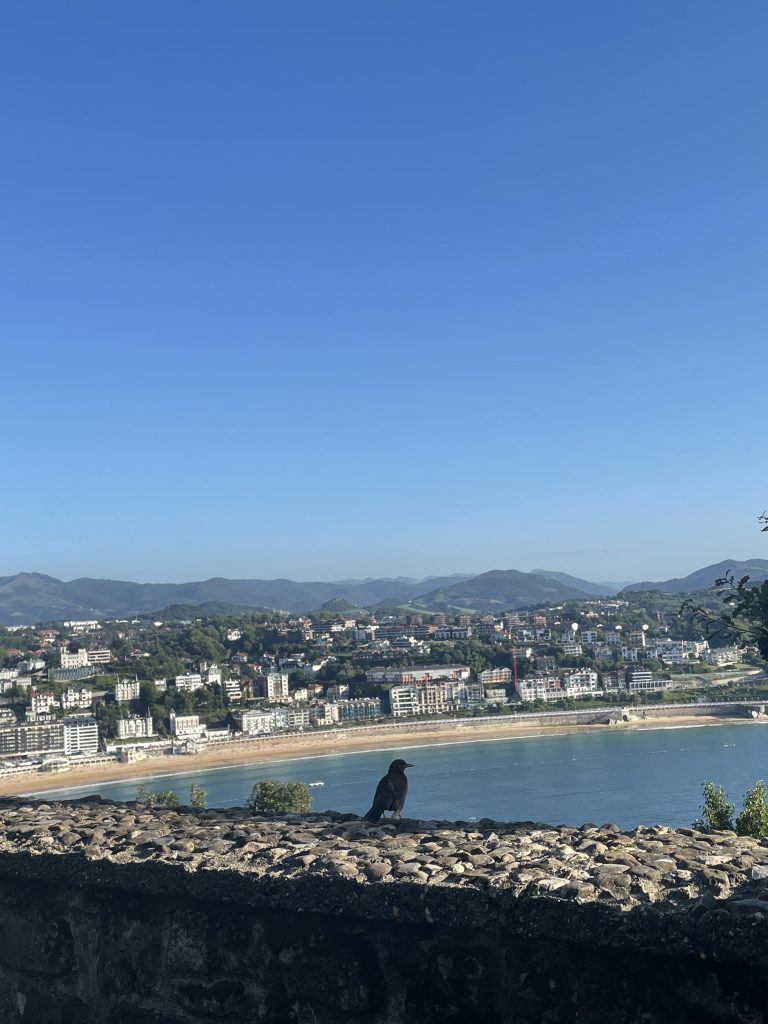After a chain of rainy days and much too cold temperatures compared to late Junes we were used to, Tuesday welcomed us with a warm sun at last. Our commute to school was much more blissful than the day before, where just 24 hours prior we were trekking through pouring rain. Itching to soak up as much sun as we could, a small group of us decided to go to the park next to the school on our break. The park is known as Parque de Cristina Enea, noted for its beautiful scenery and exotic animals (although after just over a week of exploring we have begun to suspect the peacocks might be an old wise tale). 1:00 soon came and we dashed to our bikes, heading to Zurriola, the closest beach to the school. Lately we have found ourselves ditching Google Maps as we become more acquainted with the city, allowing us more freedom to enjoy the beautiful days. Some stayed at the beach all day, some wandered, but we all met again at 7:00 for our hike up Monte Urgull to see the statue of Jesus that watches over the beaches, called Estatua del Sagrado Corazón de Jesús.
As soon as we stepped off the paths of Old Town and into the trail, it seemed as though we were in a different place entirely. Where we were just neighboring quaint shops, bars and the sea, we were soon surrounded in a wonderland of tall trees and lush greenness growing out of what seemed to be every corner of the dark cobblestone. The tiny roads and steep hills at first were daunting, and soon exhausting, but worth the heavy breathing as we kept ascending, as each step led us to a more unique view of the city than the last. We could easily see the streets we’d been traveling, which at first seemed so complicated, now so small. We could point to where we went to class, our hotel and our favorite spots on the beaches like a map. After a surprisingly short amount of time, we were as close to the statue as we could get, and we were able to really appreciate all the details that went into making the statue.
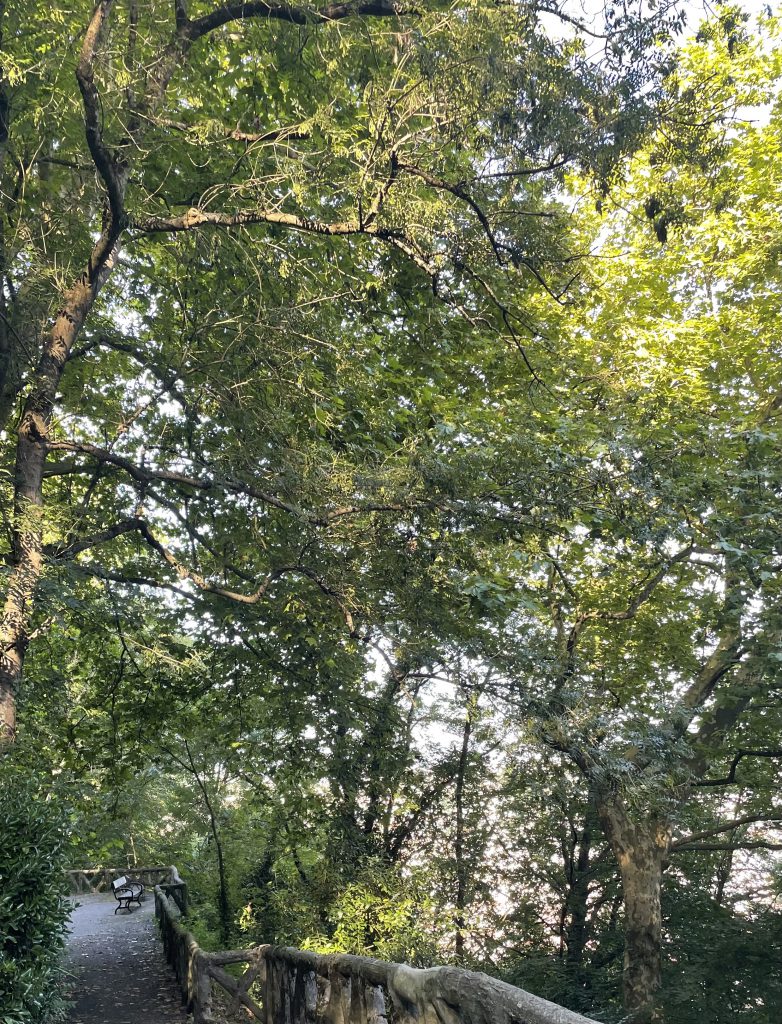
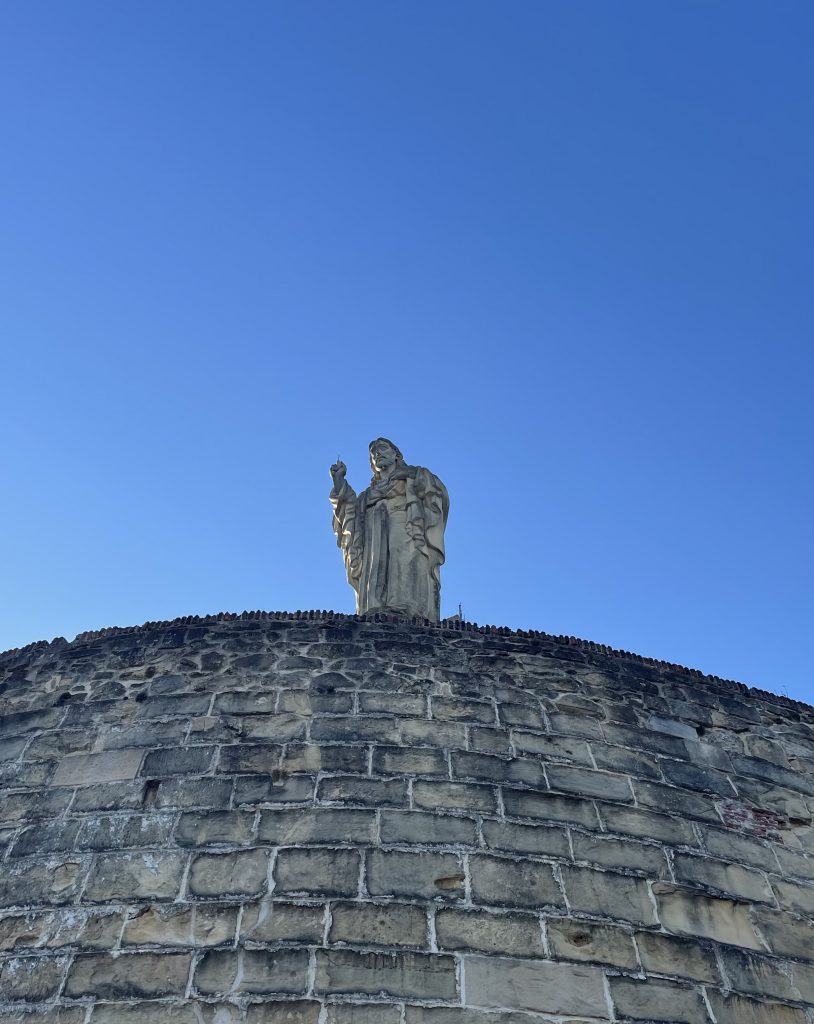
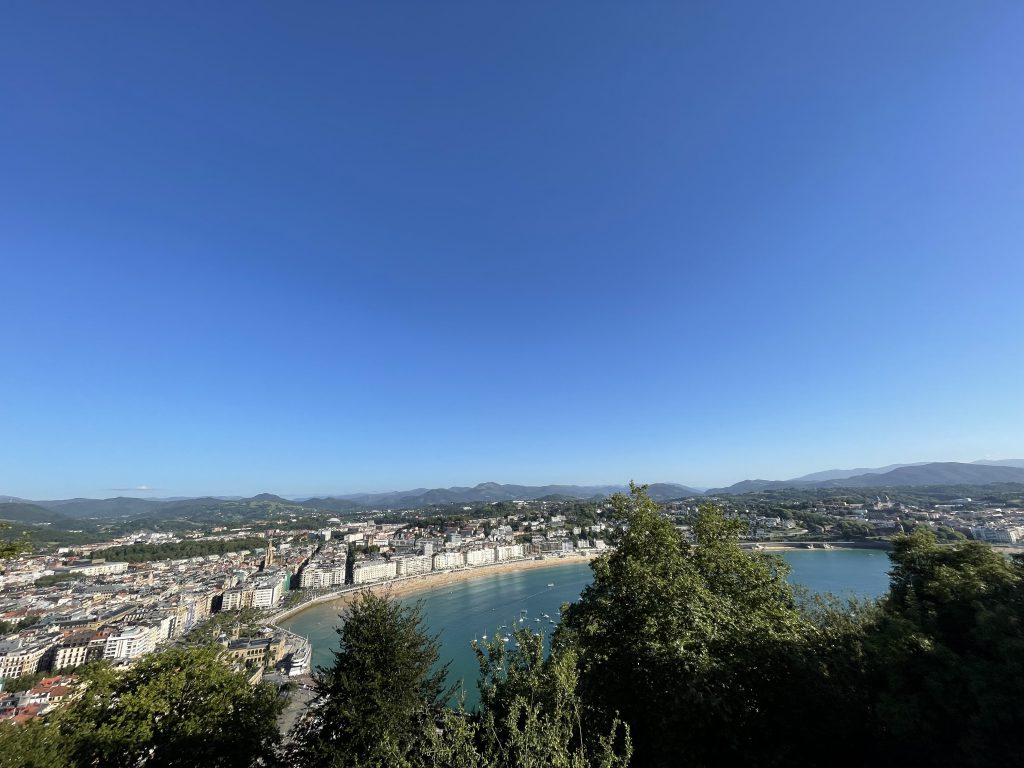
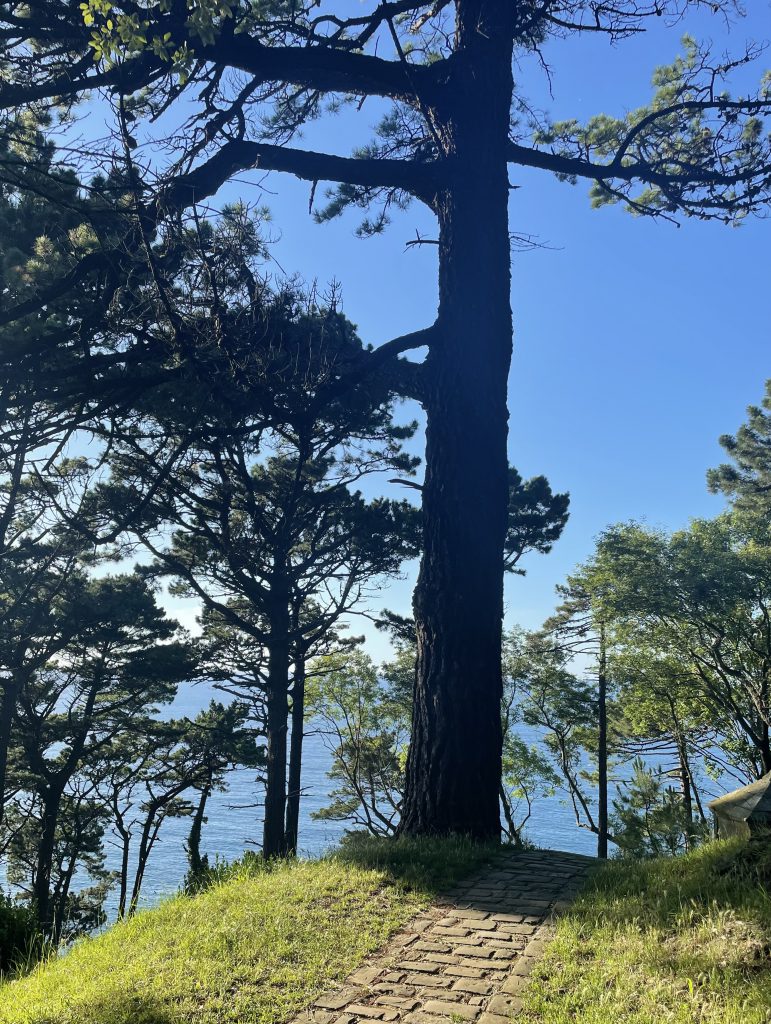
After taking pictures and exploring all the cobblestone nooks, we were led down a tiny staircase to get another breathtaking view of the city. It was there we had a discussion of Basque history, starting with the Spanish Civil War from 1936-1939. Franco’s dictatorship began soon after the war ended, which, in a poor attempt to create a unified Spain, entailed the Basque language becoming illegal to speak, causing families to shed their sacred ancestral names. It was in this socioeconomic culture where the ETA found they could easily recruit young, disadvantaged people looking for a cause to fight for, a purpose. The ETA made countless violent political acts against the Franco regime, the most impactful being in 1973, after the death of Franco himself, bombing and killing his successor. Two years later when democracy was made into law, the ETA had no real reason to continue. Despite this fact, the group split into political and military wings and instigated the Spanish government through violence and assassinations, which indeed caused the government to track down and arrest members. The ones who got arrested were sent to prisons far from the Basque country, away from families that could visit them and any signs of familiarity. Prisoners in Spain were usually able to have their families visit them in order to assimilate back into society more effectively, however, this was not the case for those with terrorist causes, ultimately causing a swell in membership of the ETA and a rise in support of their cause.
Fast forwarding to the 1990s, Spain was under rule of the conservative party. In 1997, the ETA kidnapped a young councilman in hopes the threat of his death would bring back the Basque prisoners. However, their ruthless murder of the councilman not only brought opposition from the Spanish government, but the civilians themselves. They were no longer scared of the terrorist group, causing many protests to rage throughout the city. After more violence, the ETA finally ended in 2017.
Even with Spain’s turbulent political past, the country is making incredible strides today. The Spanish government has one of the highest percentages of women in parliament and has passed a number of progressive laws. One of which includes making it illegal to harass a woman about her choice to attain a abortion, and additionally, making access to menstruation products astonishingly accessable to all. The incredible political bounce back Spain has demonstrated gives hope for a more progressive future despite the past, and even the steps backwards as we’ve recently seen in America.
